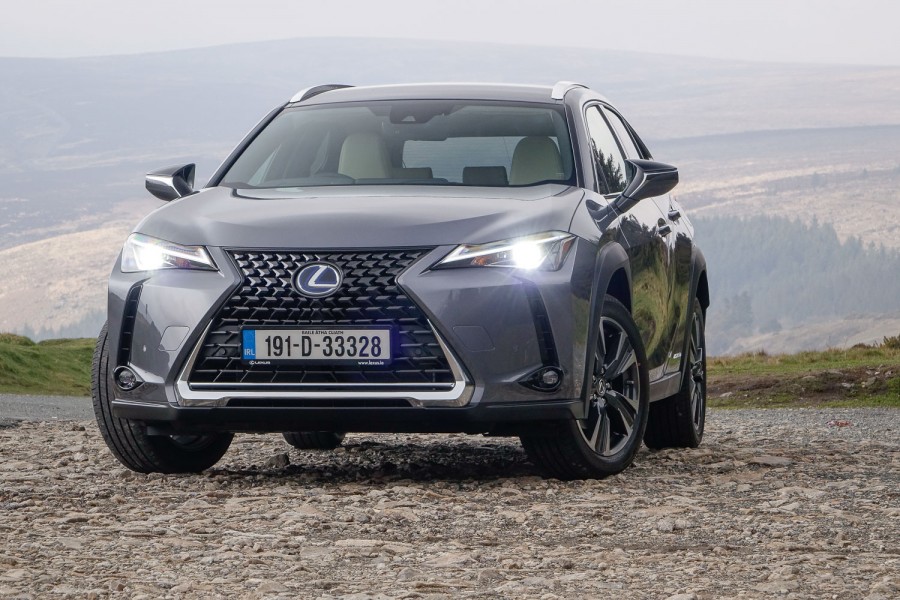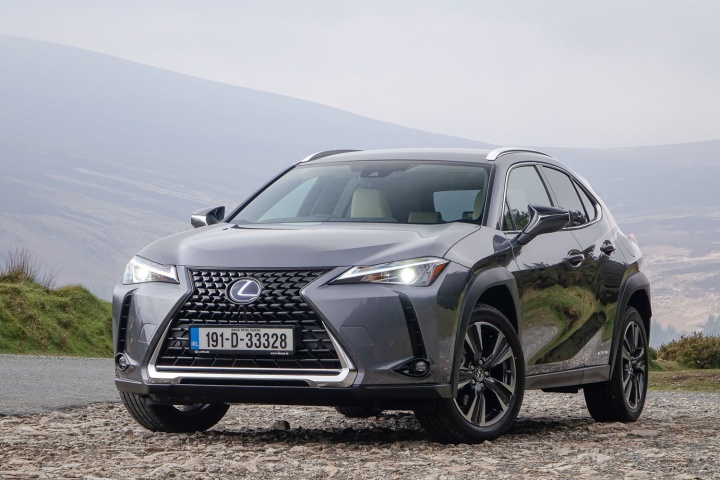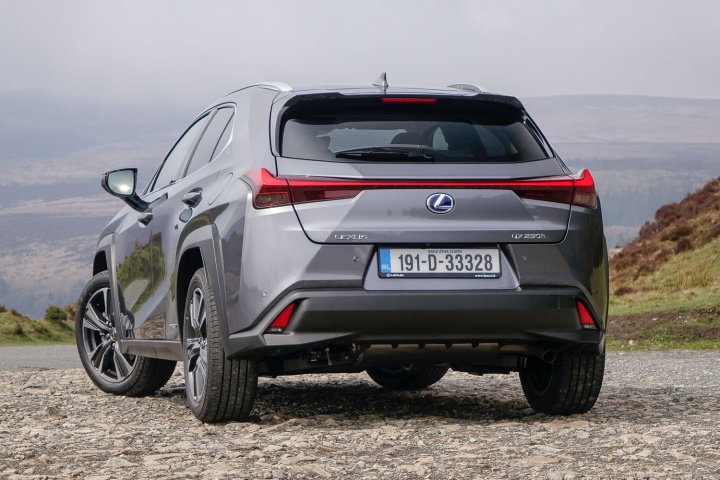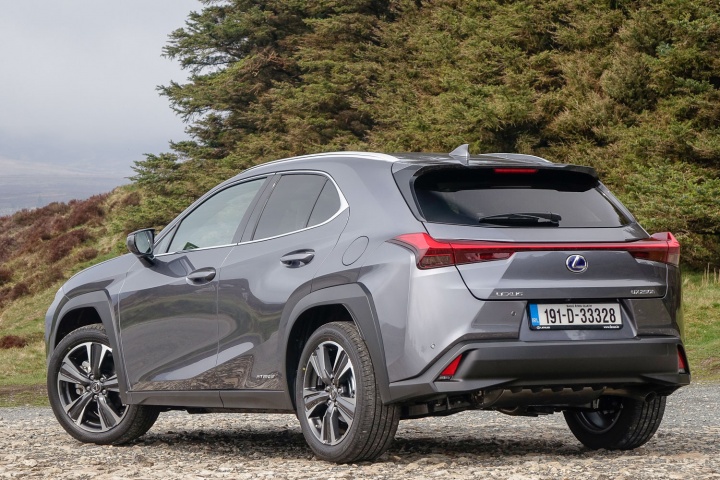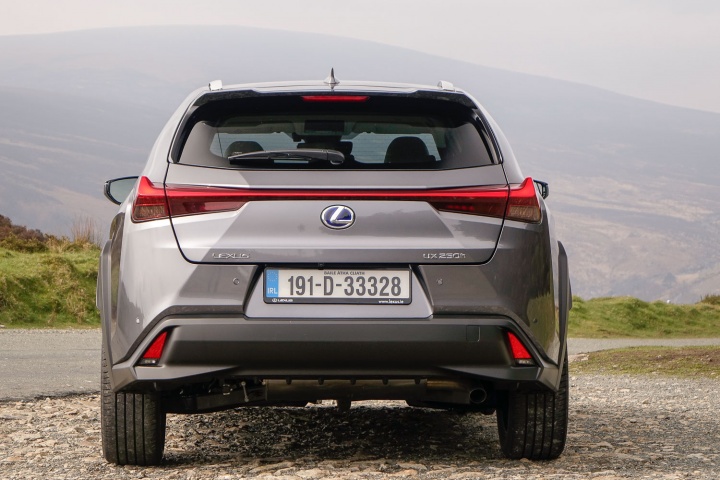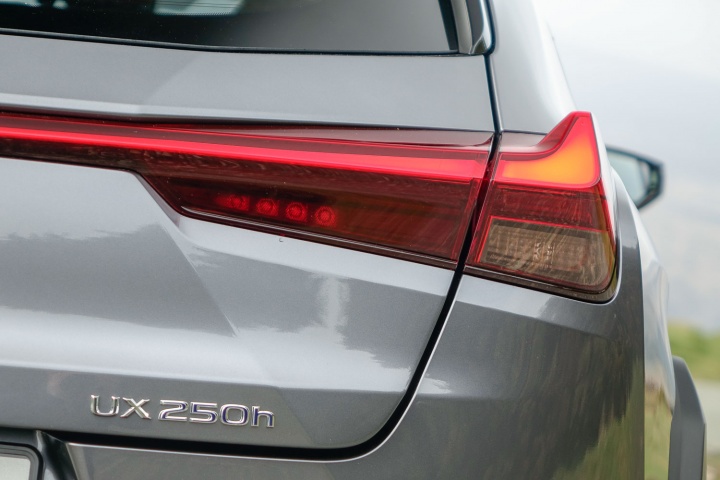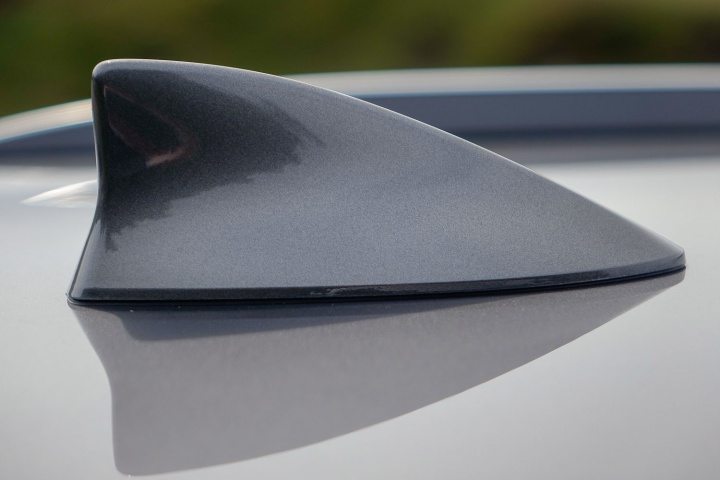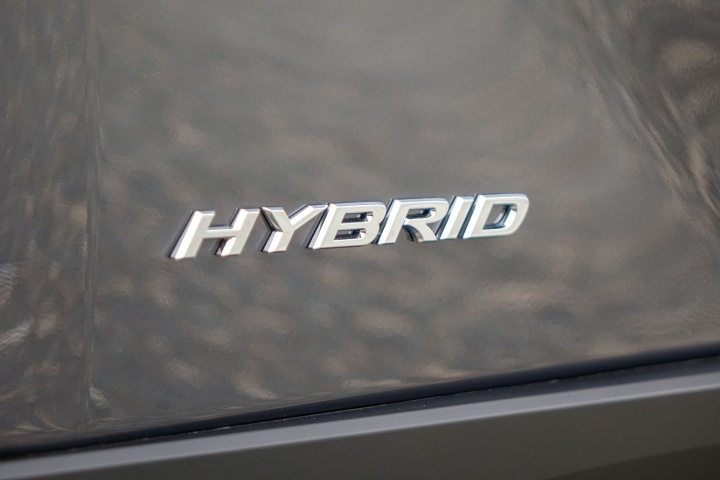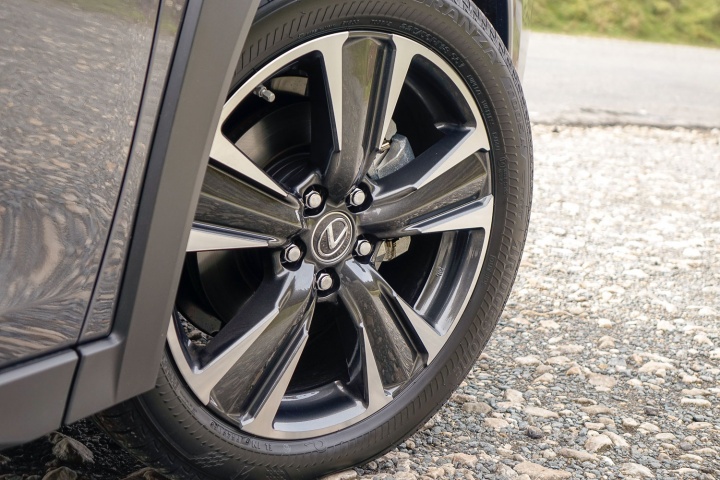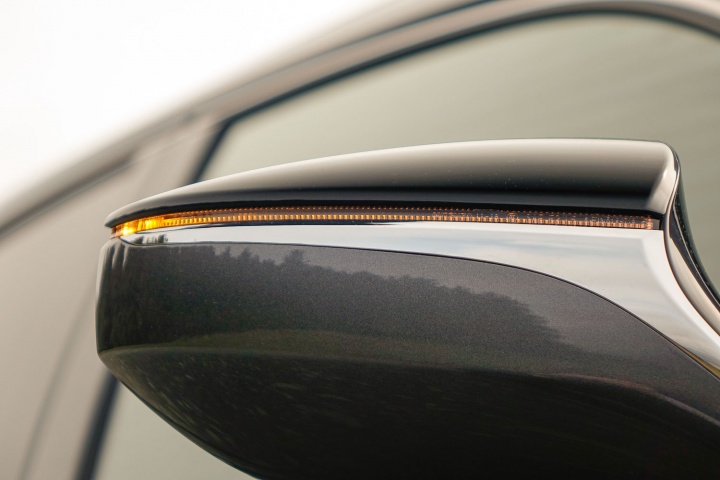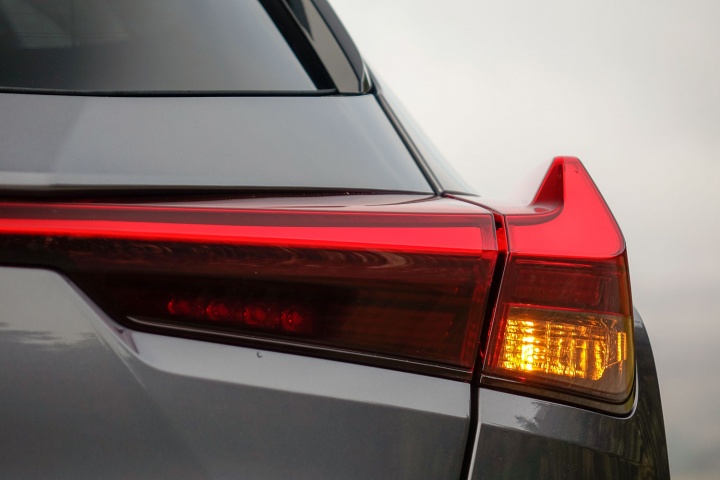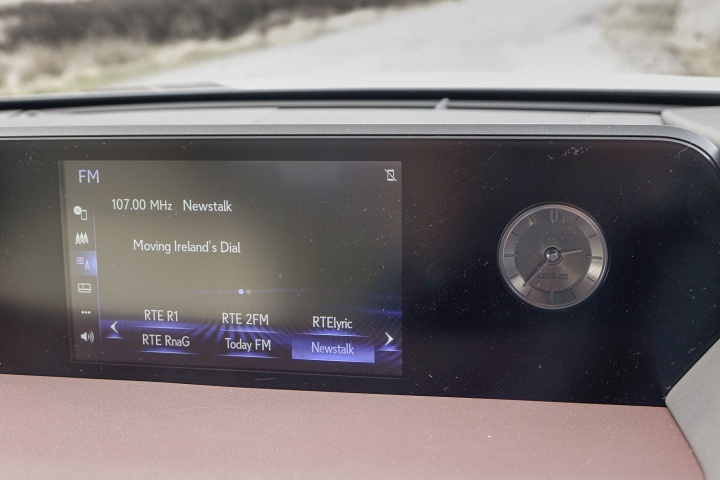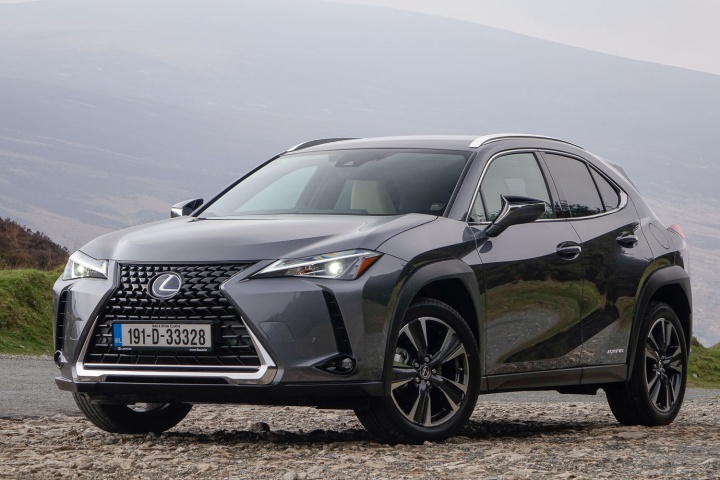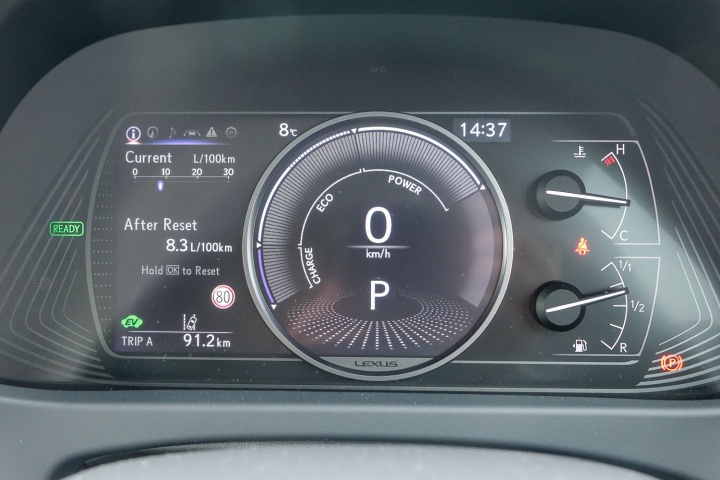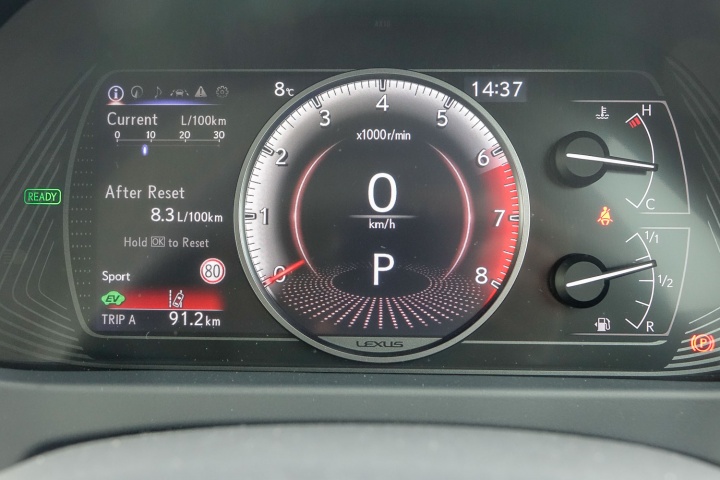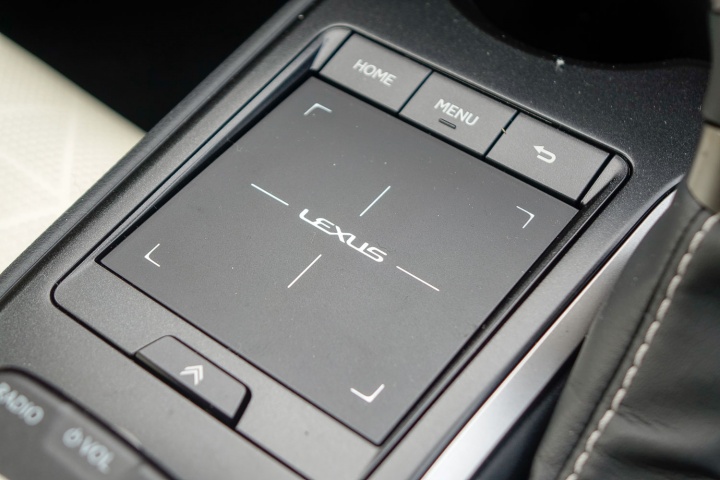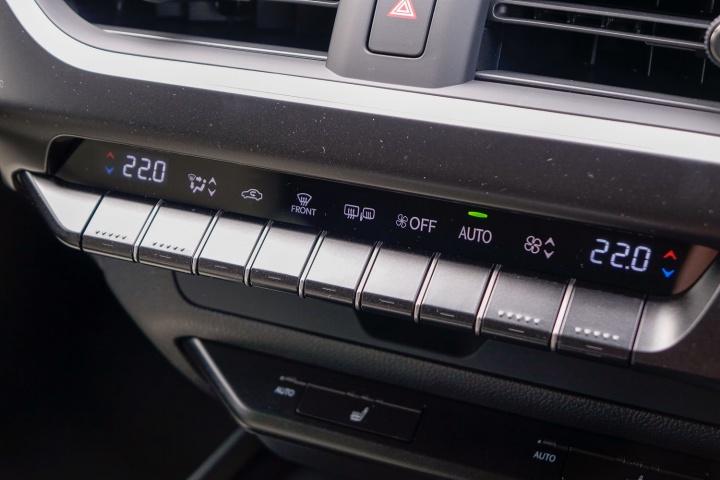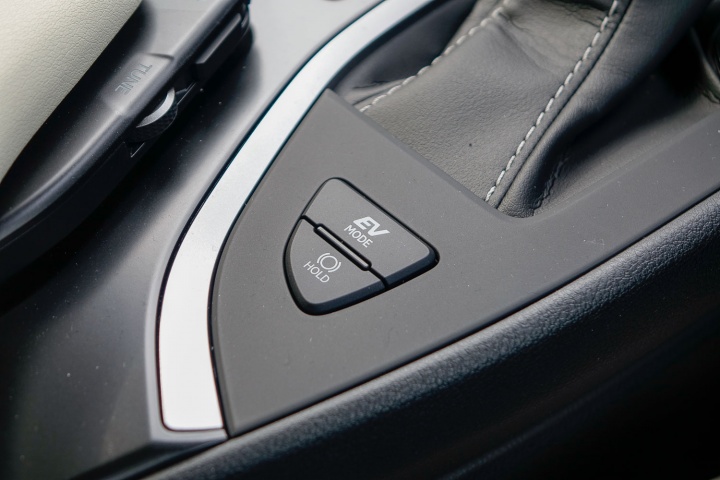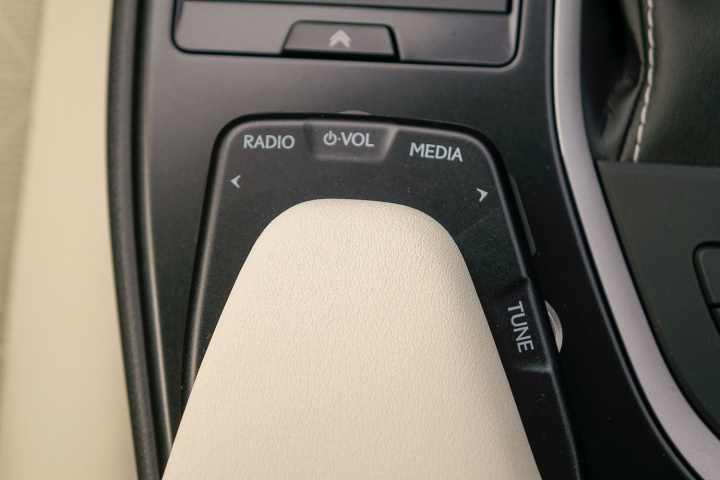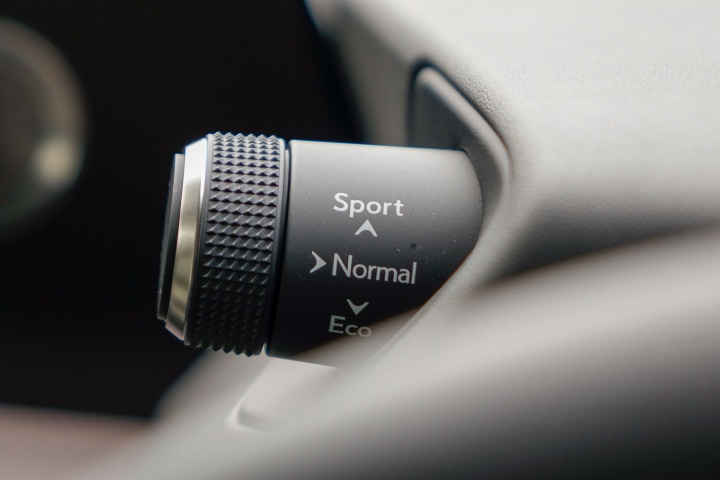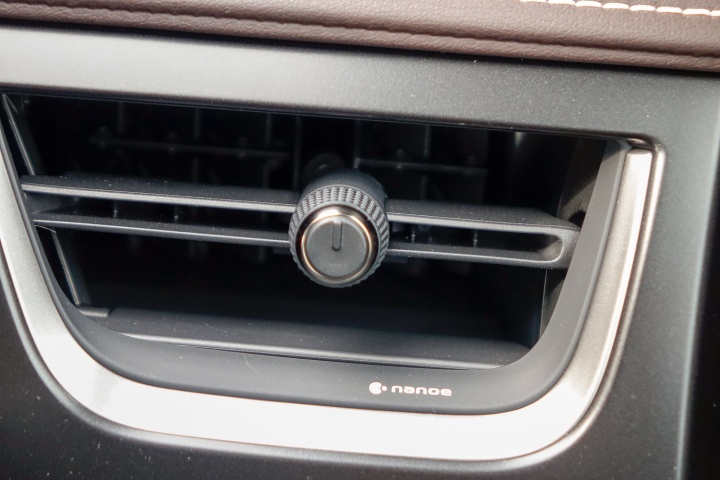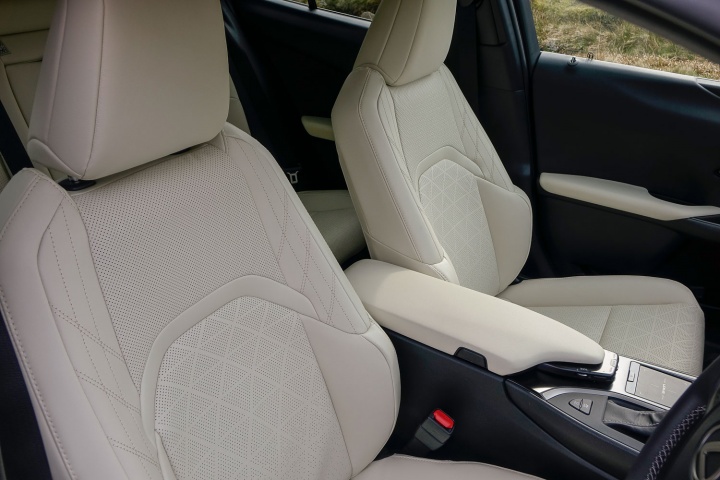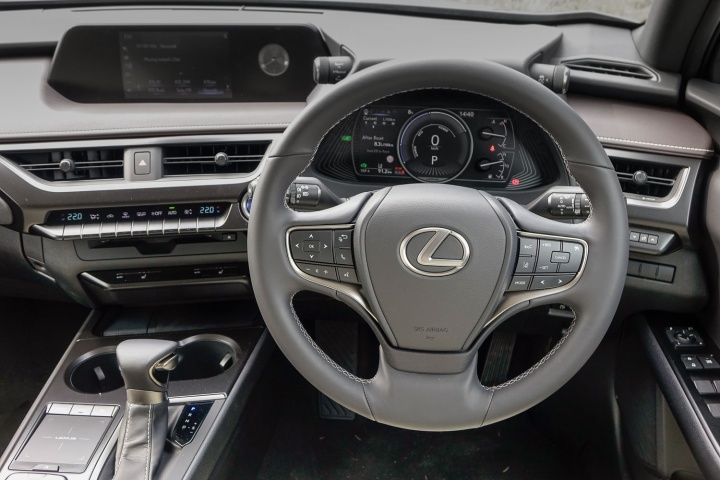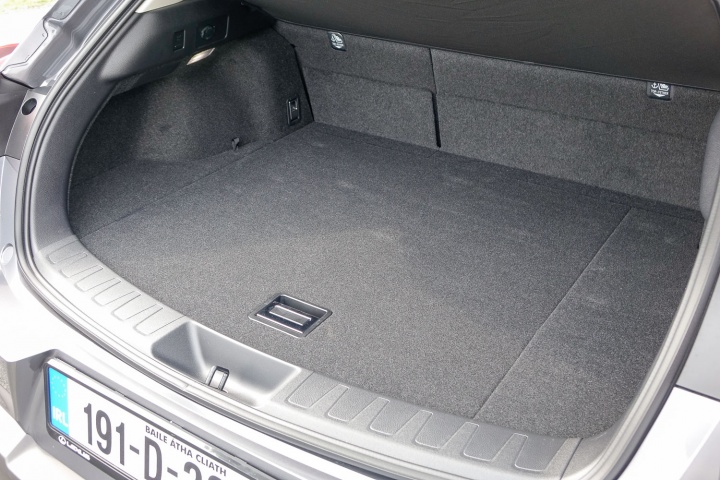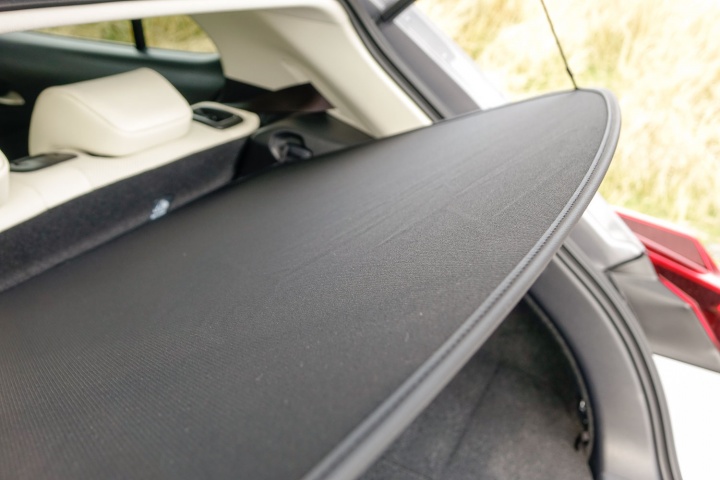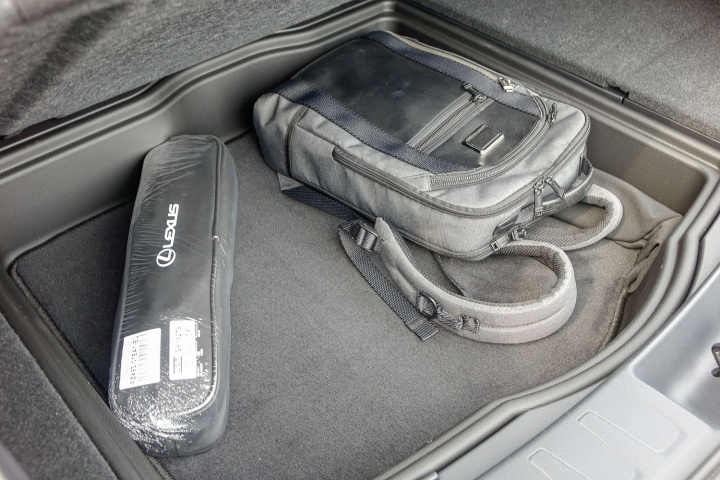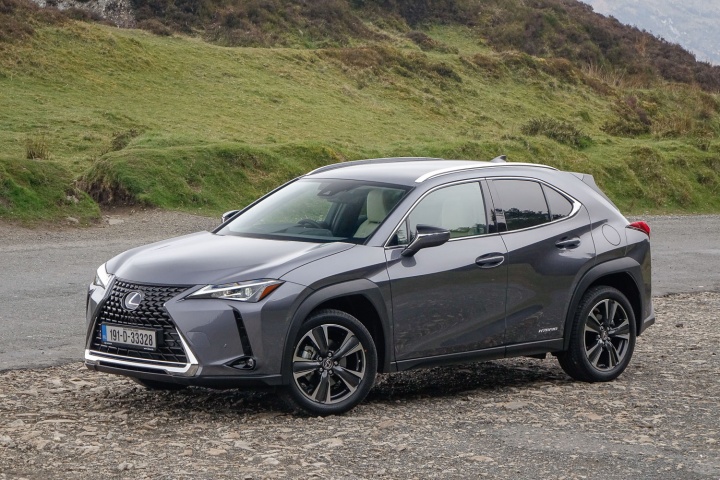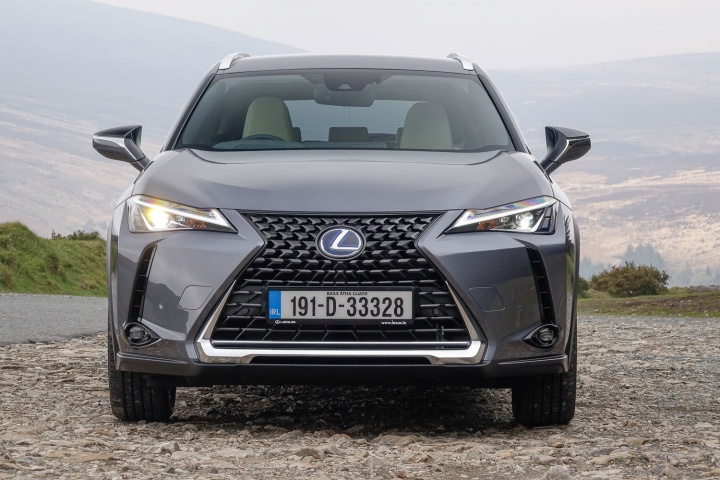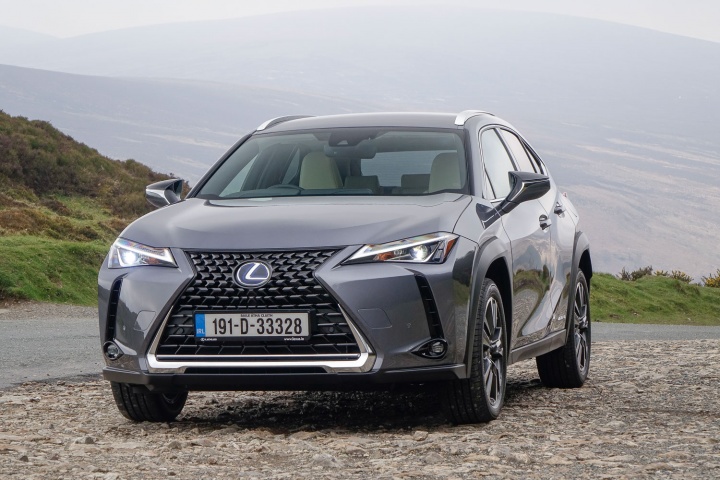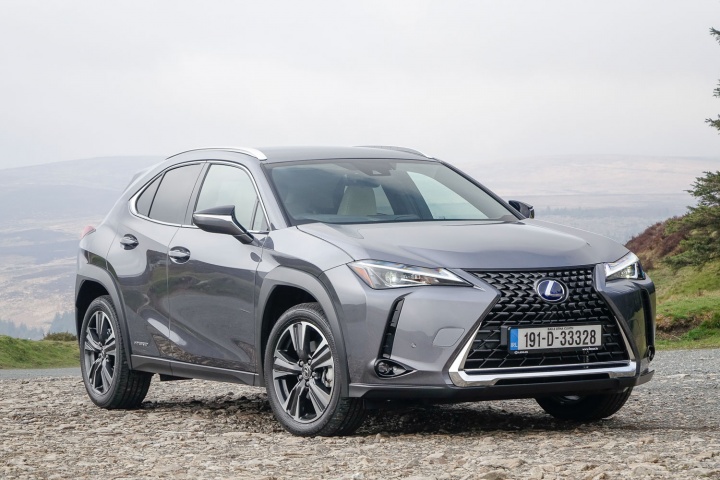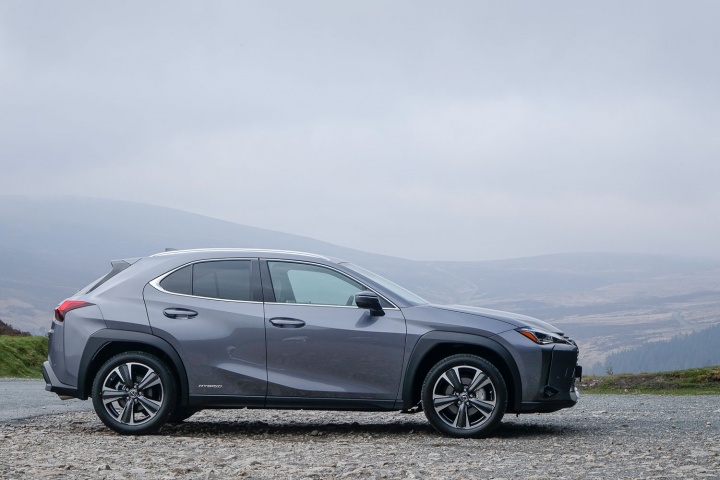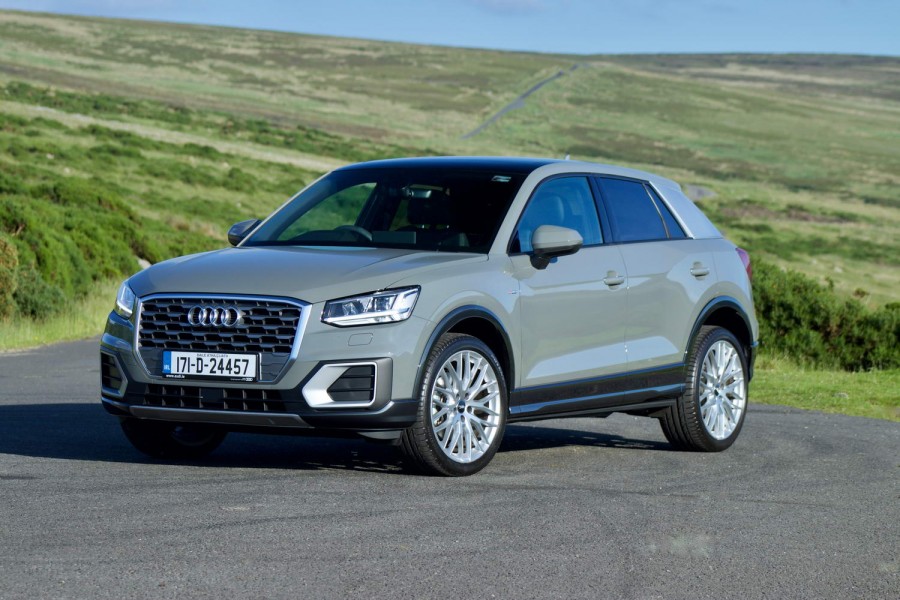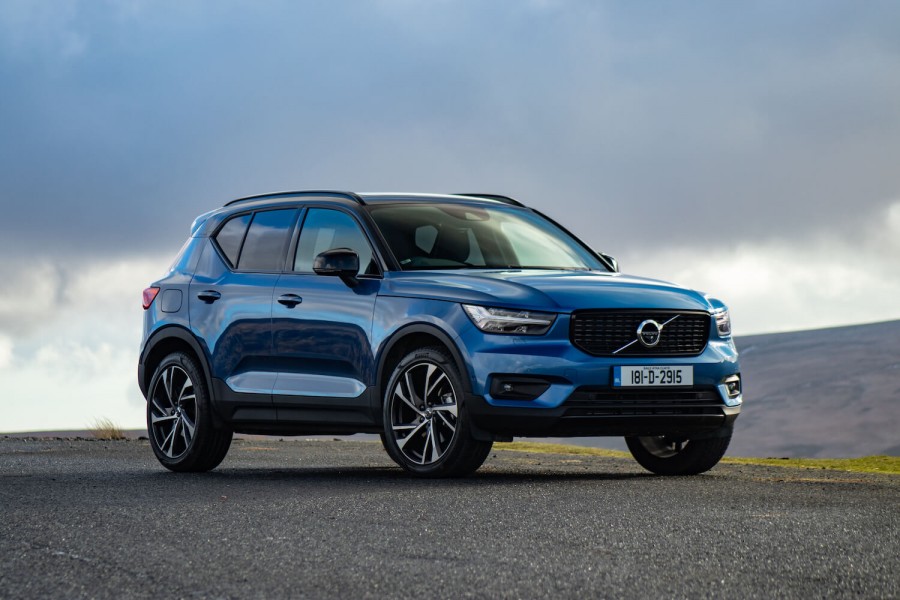What are you driving?
This is not Lexus' smallest car - that honour still goes to the CT hatchback, a car based on decade-old Toyota Prius technology. The new UX, Lexus' rival to the likes of the Audi Q2 and Mercedes GLA, is also Prius-based, in that it uses the same underpinnings as Toyota's newest cars (Lexus calls it the GA-C platform, but it's basically the same as Toyota's TNGA system), and shares with them its hybrid powertrain. The good news is that, unlike the Lexus CT, the newer hybrid system is a satisfying thing to use, and much more effective in day-to-day driving.
It is a very compact car, this Lexus UX. The styling says SUV or crossover at the front, right enough, where you can see obvious influence from Lexus's bigger 4x4s - the NX and the RX, but look around the back and you'll see a sharply-sloping roofline and a cut-off tail that don't inspire much confidence when it comes to interior nor boot space.
That hybrid system uses as its base Toyota's new 2.0-litre Atkinson cycle petrol engine, which develops a pretty healthy 143hp by itself. Add to that the assistance from the electric motor (fed, as ever, by a stack of older-style nickel batteries that live under the boot floor) and you get a combined 180hp. More importantly for most customers, you also get impressively low CO2 figures, so the UX is amongst the most tax-efficient of all small crossovers.
Standard equipment is impressive, and includes the Lexus Safety System Plus (which comes with pre-collision detection, adaptive cruise control, road sign recognition, lane departure warning and lane trace assist), LED headlights with auto high beam, rear parking camera, rain sensing wipers, a seven-inch infotainment screen and climate control.
Our 'Luxury' spec test car also included 18-inch alloy wheels, keyless entry and ignition, cornering fog lights, 'smooth' leather seats (and very smooth they are, too), heaters for those seats, satnav and an auto-dimming rear view mirror.
Name its best bits
Well, I think it looks great. I know not everyone's in love with the Lexus 'big-grille' styling language, but I think it looks better and better with every iteration, and the UX is an especially handsome car. I can't help but wonder if it might look better without the (faintly pointless) SUV-esque add-ons such as black plastic cladding on the wheelarches and lower body, but hey - I guess that's what the market wants these days.
If anything, the interior is even better. Now, that relatively small size on the outside means relatively small size on the inside too, so the cabin is charitably described as 'snug', but the seats are wonderfully comfy and supportive, and the mixture of digital and analogue displays on the dash look great. Lexus has also, impressively, retained the big-car quality feel of its larger models here - there's no sense that by down-sizing and down-pricing that you're also sacrificing any quality, and everything in the cabin looks and feels great.
On the move, the UX's primary mode is one of refinement. Aside from the occasional high-rev excursion triggered by the CVT, the powertrain is exceptionally quiet and very, very smooth. Even then, the CVT is much less annoying than such setups used to be - possibly a combination of both technical improvements and the fact that we're getting used to them.
Real-world economy is solid, if not especially spectacular. We averaged 5.9 litres per 100km, or 47mpg, which is fine - especially considering that most of our mileage was schlepping up and down the motorway - but perhaps one might expect better.
Still, that could have something to do with the amount of time we spent in Sport mode, which not only livens up the steering and throttle response, but which also turns the rev counter background white - just like the old LFA supercar. Who could resist that?
Thankfully, Sport mode is not merely an affectation. With the extra weight in the steering (a shame that it never quite loses an artificial and slightly rubbery feel) the UX is really rather good fun to drive. It's grippy, pointy, agile and rewards you with just enough feedback to make it worth toggling that Sport switch and getting off the motorway for a while.
Anything that bugs you?
OK, that space thing we talked about. The boot is officially rated at 320 litres, but feels smaller and more restricted in practice. The rear seats are very small, and if you're tall, you'll have to have the driver's seat pulled forward to allow those in the back reasonable legroom. And, as ever with Lexus, the graphics and menu system for the infotainment screen seem old fashioned, and a little clunky.
And why have you given it this rating?
We are fast approaching the point where hybrid cars stop being the hair-shirt economy and environment option, and start being - arguably - the most desirable car in the class. The UX 250h is a perfect example of that. Its hybrid powertrain is effective and much more satisfying to use than you might think, and the rest of the car is stylish, beautifully made and surprisingly good fun to drive. With a little more cabin and boot space, I think it would be unbeatable.
What do the rest of the team think?
After testing the Lexus UX 250h earlier this year, I tweeted something along the lines of this being the best car the company makes. And I stand by that. As Neil said, in shrinking the package, Lexus has resisted the temptation to cut corners with the quality and interior ambience. That instantly puts it top of the pile in the premium crossover sector. And I really don't think the rear seat space is a major issue, as small SUVs such as this are not often bought by growing families. Oh, and I reckon Neil understated how good the UX is to drive as well - it'll surprise people.
Shane O'Donoghue - Editor

